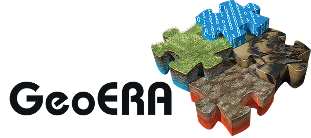Ignasi Herms (ICGC) and Cornelia Steiner (GBA), 2 February 2021
Shallow geothermal energy is a renewable energy source recognized by the European Parliament in its DE 2009/28/CE and DE 2003/54/CE directives. It is a reliable and efficient technology that can contribute significantly to the reduction of CO2 emissions in cities thanks to the use of ground-coupled heat pump systems. Therefore, it is expected to be one of the key renewable sources to achieve the decarbonization goals in the European heating and cooling sector for 2050.
The MUSE project has launched through its website a new catalogue of 9 fact sheets of shallow geothermal energy concepts where the most relevant exploitation schemes for urban areas are evaluated and characterized. The fact sheets (Figure 1) present proven and prospective technical solutions for heating and cooling supply including heat storage based on shallow geothermal energy.

The fact sheets numbered from 1 to 8 are structured as two-page PDF documents with a short introductory text describing the main characteristics of the category, followed by four special sections (Figure 2). Additionally, a set of case studies (mainly from the MUSE pilot areas) are presented in each fact sheet from 1 to 8.

Explore the state of the art of shallow geothermal energy here!
If you are new to shallow geothermal energy: We explain the basics of open loop and closed loop systems in our previous blogs.
Other MUSE Posts:
- Explore the new MUSE YouTube channel
- MUSE co-organized the Shallow Geothermal Days 2020
- MUSE – Monitoring Closed-loop systems and Open-loop systems
- MUSE – Geothermal heat pumps, a highly dynamic market in Europe!
- MUSE and the underground urban heat island effect
- MUSE – Open-loop systems requirements & advantages
- MUSE – Web-based information systems for shallow geothermal energy
- MUSE – Closed-loop systems requirements & advantages
- MUSE results published in Energy Policy
- MUSE – Differences between deep and shallow geothermal energy
- Legal framework, procedures and policies of shallow geothermal energy use in the EU and MUSE partner countries
- BBC article about MUSE activities in Cardiff
- Pilot area activities – #14 Assessment of shallow geothermal energy resources in Warsaw agglomeration, Poland
- Pilot area activities – #13 Geophysical survey and groundwater monitoring in Brussels, Belgium
- MUSE at “EGU2020: Sharing Geoscience Online” – Free online geoscience conference
- Pilot area activities – #12 Thermal groundwater use in the urbanized area of Zagreb, Croatia
